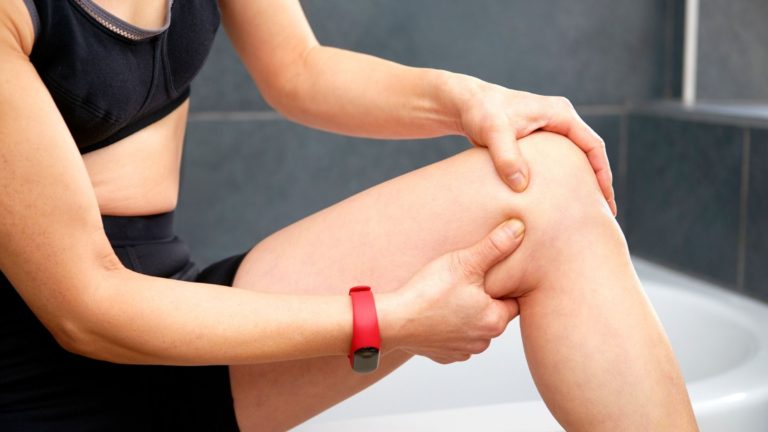
Here’s Exactly How Much Protein You Should Eat and When

If protein starred in a sitcom, it would be called Everyone Loves Protein. We’re a protein-obsessed nation, with food labels often advertising protein content and companies adding protein to seemingly every food item you can think of. The current darling among macronutrients is being pumped into everything from pasta to oatmeal to energy bars as everyone seems to want more of it.
While it’s true that very few people in America are protein deficient, it’s good to see that people are becoming more aware of the importance of getting adequate amounts. We need protein for muscle and other tissue growth and maintenance, but protein also has a variety of other vital functions.
The amino acids that make up dietary protein also form hormones and enzymes in the body, help with immunity, improve blood clotting and more. It’s also more satiating than the other macros, making it important in mindful eating and weight-loss efforts.
But what few realize is that when you eat your daily protein may matter just as much as how much total you eat overall. In fact, many people backload their protein — get most of it in the evening at dinner — which will diminish its full potential.
It’s important to know how the distribution of protein intake over the day affects muscles and other bodily processes because eating the right amount of protein at the right time of the day is essential, particularly for your physique gains. This is called ‘Chrononutrition,’ in which when you eat is as important as what and how you eat.
Here’s what you need from morning through night to make this muscle macro work harder for you.
All in a Day’s Protein
8:00 a.m.
While most active people consume much more protein later in the day, it’s breakfast protein that appears to be a morning elixir for better muscle health. A watershed study in the journal Cell discovered that the proportion of protein intake at breakfast relative to total protein intake throughout the day is a major player in improving lean body mass development and increasing muscular strength. This suggests that protein digestion, absorption and utilization fluctuate across the day and night according to the body’s internal biological clock, called the “circadian rhythm.”
This rhythm is followed by all cells and controls life functions like metabolism and growth. Simply put, protein calories might be more efficiently used earlier in your day. The investigators also uncovered this little protein tidbit: it was the intake of branched-chain amino acids, found in breakfast foods like eggs and yogurt, early in the day which was especially important for increasing muscle size.
Worth noting is that this is not the first investigation to show that going big on breakfast protein is a wise move. A study in the Journal of Nutrition discovered that daily muscle protein synthesis, the key to building a stronger body, was greater in participants when they ate as much protein at breakfast as they did at dinner instead of skewing protein intake towards the end of the day.
Similarly, this study by scientists in Japan determined that moving some of the protein from dinner to breakfast did a better job at increasing muscle growth in participants than did consuming more protein at dinner and less at breakfast. This was the case as long as total protein intake for the day was sufficient to meet bodily needs.
Too often, breakfast staples like cereal, bagels, jams and pastries are dense in carbs and low in protein. That makes it important to work more protein-rich foods such as eggs, cottage cheese and maybe even some protein powder into your morning routine.
To kickstart some muscle love, aim to rise and dine on 20 to 30 grams of protein shortly after rolling out of bed. A bowl with ¾ cup Greek yogurt topped with 2 tablespoons hemp seeds, 1/4 cup granola and 1/2 cup berries or a cup of oatmeal with a scoop of protein powder mixed in and served with a side of 2 hard-boiled eggs will get the job done.
12:00 p.m.
As with breakfast, don’t skimp on lunchtime protein. Loading up on more of this macro mid-day can be a great way to keep you feeling full until dinner so you’re less likely to gravitate toward ultra-processed snack foods when faced with an afternoon hunger attack. A protein-rich lunch can help drive up levels of satiety-boosting hormones and keep blood sugar spikes in check — meaning you don’t feel super hungry again shortly after eating.
Research suggests that eating at least 0.4 grams of protein for every kilogram of body weight in each of our meals, including lunch, is the amount that best supports muscle building. So a 130-pound woman should aim for a lunch that includes no less than 23 grams of protein.
All of this means that for your nutrition to support your fitness goals, you can’t just load up on protein at one meal and ditch it at the next. Besides, a recent study published in the American Journal of Clinical Nutrition found that eating more of your daily calories at lunch than at dinner can help with the pursuit of body composition changes. In other words, a big lunch and light dinner may be wise for someone looking to lean out.
So say goodbye to wimpy, protein-light salads. A mid-day bowl of leafy greens topped with two ounces of cooked chicken, 1/2 cup of chickpeas and 1/2 cup of quinoa will fill your tummy with sufficient amounts of muscle-sculpting, hunger-quelling protein.
6:30 p.m.
If you’ve been smart with your protein intake earlier in the day, there’s simply no need to overflow your plate with a Flintstone-sized steak at dinner. The aforementioned concept of chrononutrition suggests that our bodies aren’t as good at efficiently using the calories from macronutrients, including protein, as the sun begins to set.
Too many late-day calories could even drive up the risk for heart disease and frustration during weight-loss efforts. Besides, there is only so much protein that your body can use in one sitting. A study from the University of Texas found that consuming 90 grams of protein at one meal provides no additional benefit regarding muscle protein synthesis as eating a much more modest 30 grams, the amount in about 5 ounces of grilled salmon. Any extra is likely just spillover.
Consider this a good time to more frequently serve up plant-based proteins like tofu and lentils. A study in the Journal of Clinical Endocrinology & Metabolism discovered that eating a plant-based meal for dinner was associated with 10% lower odds of cardiovascular diseases. The study, based on data from 27,911 adults in the US, also showed that individuals who consumed a lot of fatty meats and refined carbohydrates during dinner had greater odds of developing heart health woes.
10:00 p.m.
While late-night snacking is generally frowned upon, reaching for a bit of protein before hitting the hay could benefit your training and physique goals.
Research suggests that consuming about 20 grams of protein at night can increase muscle protein synthesis and improve whole-body protein balance during sleep, especially if this follows up an evening workout. This essentially reduces the window that your body is in a protein-fasted state to maximize your 24-hour muscle-building potential.
A chunk of the research supports that casein protein, found in dairy foods and especially abundant in cottage cheese, is most impactful since it is a slower digesting protein so will trickle amino acids into your system for several hours while you snooze. Consuming this type of protein in the evening may also bump up your morning resting metabolic rate, which could be beneficial for fat loss. So you could spoon up a bowl of cottage cheese or make a small smoothie with casein protein powder as a pre-bed snack. But other protein foods at night such as Greek yogurt or a plant-based protein bar are likely also helpful for muscle health.
And don’t lose sight that most active women need at least 1.2 grams of protein per kilogram of body weight (71 grams for a 130-pound female) in a day. By adding another protein intake opportunity, you might be more likely to reach your daily goal — and we already know that spreading protein intake out throughout the day is a smart move.
Just be aware that late-night protein intake is likely much more beneficial for people who are frequently performing resistance or high-impact training. If yoga and casual strolls in the park are your jam, the need for an extra dose of protein is probably less.
Published at Thu, 23 Dec 2021 08:36:58 -0800






